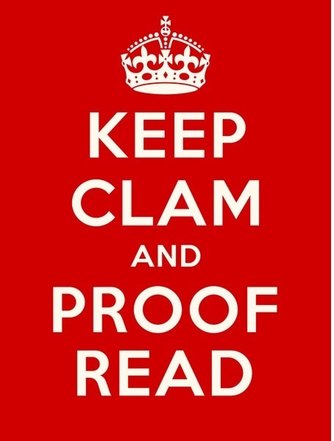
1. Information about the goal
At the very least, it would help the proofreader to know the title of the journal you will be submitting to in order to allow them to Google a few sample articles to see how the journal formats their articles and handles various stylistic issues (Oxford commas, capitalization rules for tables and figures, etc.). Sending a few articles from your target publication or a link to that journal's style/submissions guidelines would help even more. Sure, that takes a little more effort on your part but it will increase your satisfaction level in the end.
For speeches and general correspondence, the name of the event or the job title of the recipient and your relationship with them will help the proofreader choose the most appropriate tone and vocabulary level.
2. The author's weaknesses and expectations
If you know that you often drop the 's" from countable plurals, please let your proofreader know so they can keep an eye out for that. Sure, they will catch most plural errors but there might be some terms that they are unfamiliar with in a scientific or technical paper and they won't be sure if it is a countable or non-countable noun, which can lead to subject-verb agreement errors.
Similarly, if the proofreader is expected to do more advanced work such as look over your reference list and check the references against the in-text citations you should let them know. There is a great deal a proofreader can do beyond fixing grammatical errors and making stylistic changes. They can also take on editing tasks such as suggesting alternative vocabulary, rephrasing sentences, adding comments about content and organization, and even helping with typesetting. If you let your proofreader know what your expectations are before they get started, you will be much happier with the revised draft that you get back.
3. The final deadline
Some proofreaders charge an hourly rate and other by word count and urgency (same day, two-day, four-day jobs, etc.) for working on a document. Your proofreader needs to know how urgently you need the drafts back in order to fit them into their schedule. (Note: you probably aren't their only client.)
Be sure to consider the number of drafts it might take to get your document ready to submit to a journal or use it in its final form. Complicated papers often need multiple drafts to be crafted into the version that will make the strongest impression and increase its chances to be accepted for publication. Rushing won't do any favors to your document so start working with your proofreader as early in the writing process as you can.
***
As a final suggestion, whenever possible, work with a proofreader that you know personally. This will help you feel more comfortable discussing changes and negotiating around areas of confusion. The best proofreading projects are a kind of dialogue where the author and proofreader work as a team to mold the author's words and ideas into their clearest and most accurate form. Working with someone that you know will make that dialogue more comfortable and result is a better document and a more enjoyable writing experience.

 RSS Feed
RSS Feed